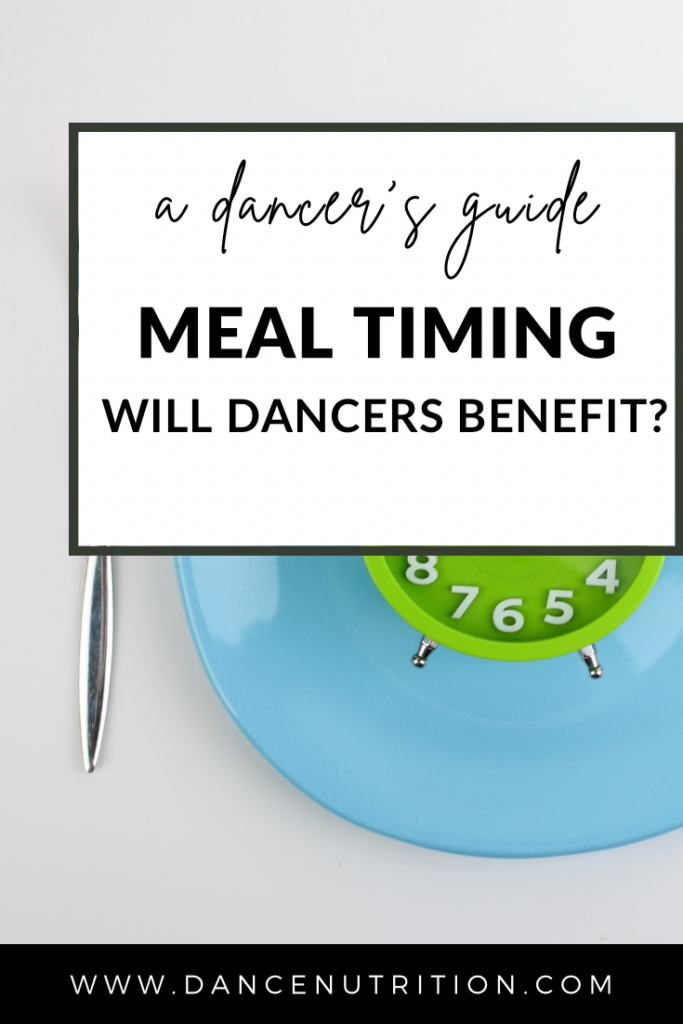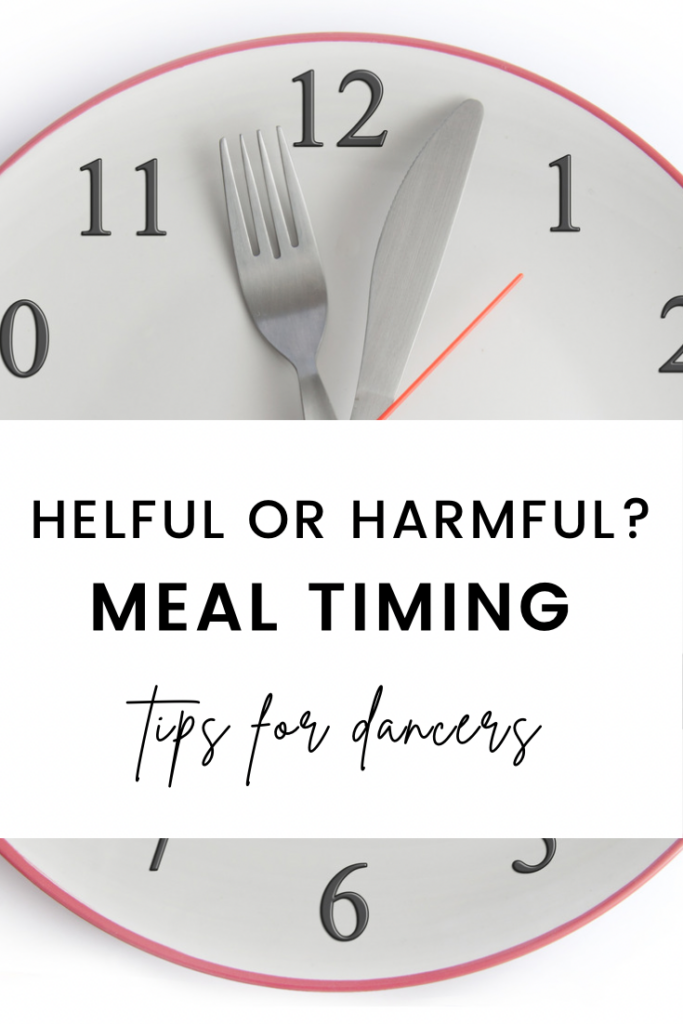A common challenge for dancers who are just beginning their work with me is unraveling the topic of meal timing. For most dancers, a flexible meal and snack routine is the backbone that supports adequate nourishment. But even with flexibility, meal and snack guidance remains vulnerable to the same perfectionistic qualities that drive disordered eating.
Extreme rigidity around the timing of meals and snacks, along with what to eat, is a product of dancer diet culture— most commonly experienced with orthorexia and “clean” eating (both of which prioritize foods considered “whole,” “pure,” and unprocessed). There’s a difference between supportive meal planning and obsessive meal planning—a preoccupation with meal timing can be a red flag that your guidance is too rigid. A delicate balance is what formulates The Healthy Dancer® curriculum. Let’s dive into three must-know considerations for finding that balance.
Know that every day is different
The goal is to move through your day with ease; not to be overwhelmed by the same guilt and stress that drives disordered eating. There will always be schedule changes. Spontaneous plans and abrupt cancelations are part of life. Whether it’s a last-minute dinner plan or a change in your rehearsal time, it’s impractical for the timing of your meals and snacks to look the same every day. These schedule shifts might feel uncomfortable and that’s okay. The more you expose yourself to these instances, the easier it becomes.
Know that nourishment is self-care
An uprooted schedule shouldn’t be a reason to skip an opportunity to fuel your body. Reliable energy is important. This means that meals and snacks are a fundamental part of your day. Avoiding extensive gaps between eating times, along with eating sufficiently at those eating times, is part of the equation. If an experience is going to hinder your ability to refuel, then planning ahead with packable meals or snacks is highly encouraged. Working with a Registered Dietitian Nutritionist who is specializes in disordered eating recovery can help to guide you in a plan that feels supportive, rather than one that has you fixated on “rights” and “wrongs.” A few additional resources to help:
Know that self-trust doesn’t happen overnight
Depriving your body of calories impedes your ability to experience appetite regulation — the ability to both experience and honor your body’s cues for hunger, fullness, and satisfaction. In my work with dancers, I focus on helping them to build food- and body trust. It involves a specific 6-step framework that not only uncovers the thought patterns holding most dancers back from reaching performance potential but also, teaches them how to utilize nutrition information in a sustainable way. Meal and snack guidance is a large part of this work — providing the external support needed while internal healing (appetite regulation and if needed, weight restoration) is achieved.
But this journey doesn’t happen overnight. For some dancers, it can take six months. For others, it can take years. Given the prevalence of dancer diet culture, it’s also possible that a dancer’s self-trust ebbs and flows throughout life. This is why The Healthy Dancer® is an ongoing opportunity for all dancers.
What about nighttime eating- when should dancers eat dinner?
It’s common for dancers (especially my younger ones) to dance late into the evening hours. Generally, dancers will benefit from an evening snack (or meal) to not only support the body’s recovery after intense dancing but also, to ensure an adequate amount of food is consumed each day.
There is no “right” time to eat dinner. Some dancers might need their dinner before a long night of dancing while others prefer to come home to it. The best time for you to eat dinner is a time that works for YOU. If you’re choosing an earlier dinner, then a nighttime snack (or a couple) can support your energy through the later hours. If you’re holding off on dinner until later, then a late-afternoon snack (or a couple) is something to consider. A few prompts and sample scenarios are provided below.
- I’ll need a meal or snack to sustain my energy prior to dancing, but will I feel too full to dance? Smaller snacks will be a great way to hold me until dinner.
- I’m famished after school, snacks won’t cut it. I’ll have a full meal before dance class and plan for a nighttime snack before bed.
- My reflux worsens at night. I’ll split my meal into two (before and after class) and if needed, I’ll plan for an easily digestible snack that doesn’t worsen my symptoms before bed.
There are a few instances when eating before bed might be challenging— acid reflux is an example because lying down within an hour or two after eating can worsen symptoms. But there are many ways to help navigate this while still enabling you to get in that recovery meal or snack. Medications, light movement techniques, and other remedies are examples, and working with a Registered Dietitian Nutritionist can help to navigate this.




